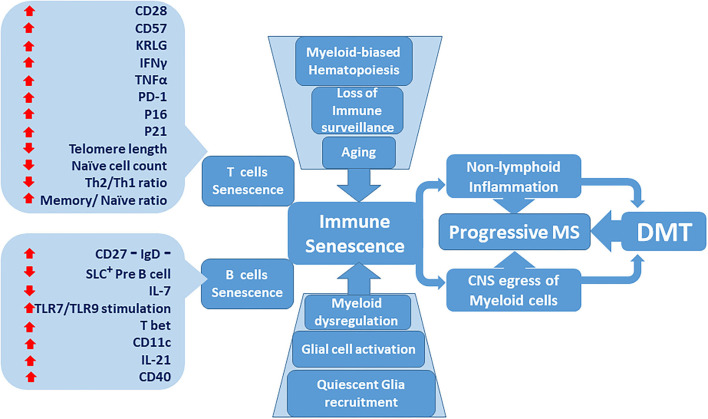Figure 1.
Immune senescence contribution to the lack of effectiveness of disease-modifying therapies (DMT) in progressive multiple sclerosis (MS). Senescent T and B immune cell phenotypes become more predominant as the immune system ages. Age-dependent deterioration of tissues including central nervous system (CNS) glial cells increases. Bone marrow-derived myeloid cells are activated and compound adaptive immune senescence. Dysregulated myeloid cells prospectively accumulate within the CNS milieu. Inflammatory MS, characterized by active relapses, transitions to non-active progressive MS, which is resistant to DMT.

